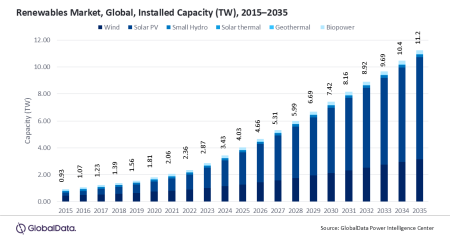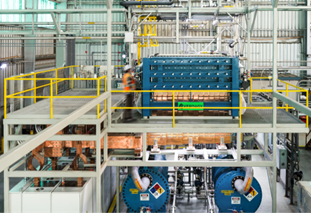 08 August 2013, Maputo – A gas-fired power station, capable of generating 150 megawatts of energy, could come on stream next May, according to Mozambican Energy Minister Salvador Namburete.
08 August 2013, Maputo – A gas-fired power station, capable of generating 150 megawatts of energy, could come on stream next May, according to Mozambican Energy Minister Salvador Namburete.
This, the largest thermal power station so far built in the country, is being installed at Ressano Garcia on the border between Mozambique and South Africa
It is a partnership between the Mozambican electricity company, EDM, with 51 per cent of the project, and the South African Sasol New Energy, part of the Sasol group, with 49 per cent. Its cost is estimated at 250 million US dollars.
It will use natural gas from Inhambane province, which is exploited by Sasol. The gas goes by pipeline to the Sasol plants at Secunda in South Africa.
At Ressano Garcia, a branch of the pipeline carries gas to Mozambican industries in Greater Maputo. Eventually homes in Maputo and the surrounding area will also be supplied with gas.
“We are certain about this project”, declared Namburete. “Judging by the contracts signed by the owners of the project, and by the contractors and suppliers, it will be producing electricity by May of next year”.
The project, he added, “seeks to increase the capacity to supply electricity to meet the growing demand. Currently, we face a deficit of 100 megawatts, particularly in the south of the country”.
This is because the new power stations proposed for the Zambezi Valley, and the transmission lines linking them to Maputo, have not yet been built.
According to EDM chairperson Augusto de Sousa Fernando, Mozambique’s current consumption is 700 megawatts (this figure excludes the 900 megawatts or so used by the MOZAL aluminium smelter, which is provided by the company Motraco, a consortium of the Mozambican, South Africa and Swazi electricity companies).
Only 600 megawatts of this total is generated inside Mozambique, and EDM must therefore import from South Africa the remaining 100 megawatts.
The existing generating capacity is much higher than 700 megawatts – but most of the power generated at the Cahora Bassa dam on the Zambezi is sold to the South African company Eskom, under long term contracts.



